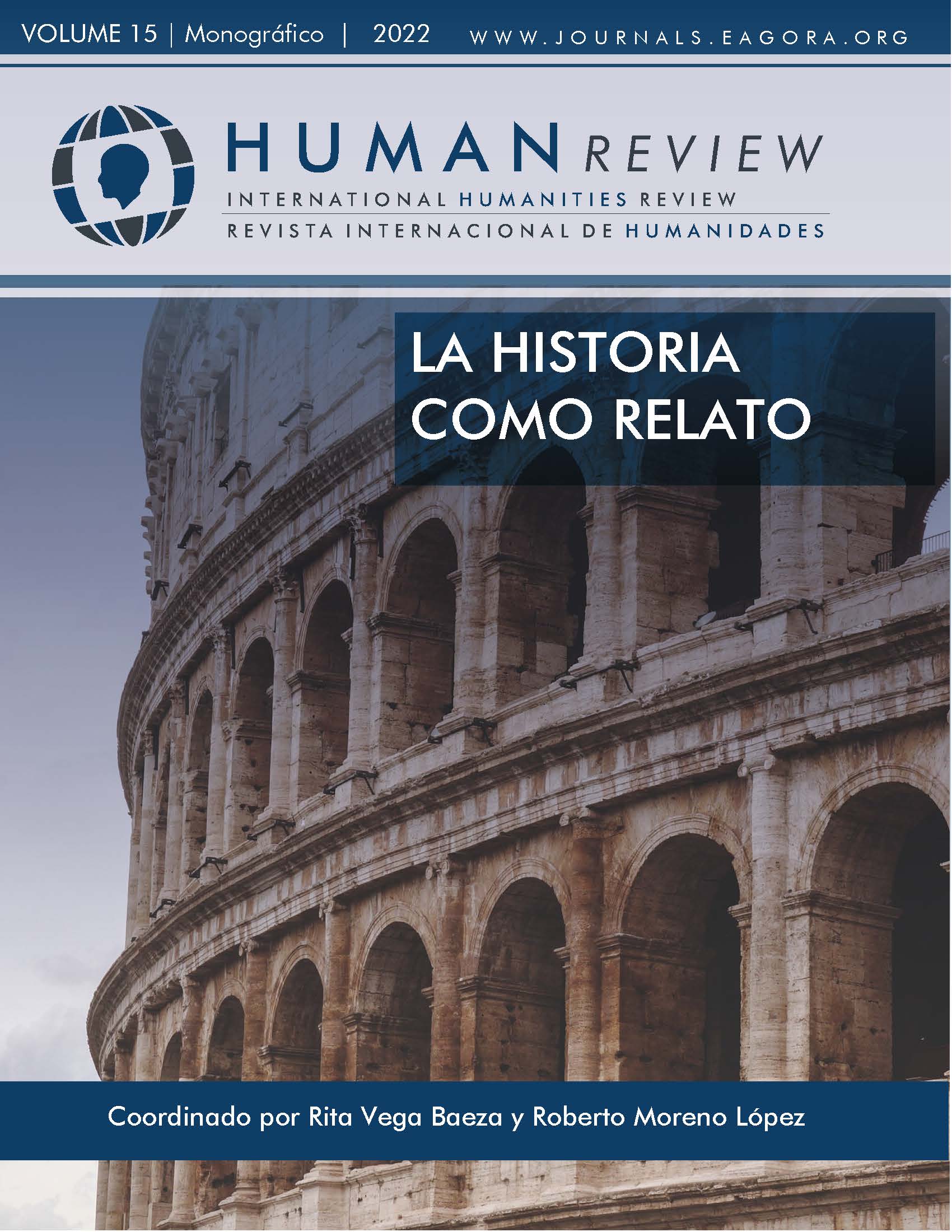An Approach to the Idea of Friendship in the Epistolary of Paulinus of Nola
El enfoque singular de la amistad cristiana en el periodo tardoantiguo
DOI:
https://doi.org/10.37467/revhuman.v11.4500Keywords:
Paulinus of Nola, Augustine of Hippo, Letter, Friendship, Amicitia, Christianity, PoetryAbstract
The perspective of friendship in Late Antiquity constitutes a considerable horizon for reflection and analysis. This paper aims to delimit the singular characteristics of friendship in the Christian world of the fourth century A.D. and, more specifically, to delve into the epistolary legacy of Paulinus of Nola, considered one of the great figures of the patristic period, whose postulates reflect a notorious incidence of friendship. To do so, I will first offer an overview of his life; then I will examine the theme of amicitia in his epistolary; finally, I will unravel the notion of epistolary friendship with Augustine of Hippo.
References
Brown, P. (2016). Por el ojo de una aguja. La riqueza, la caída de Roma y la construcción del cristianismo en Occidente (350-550 d. C.). Acantilado.
Brown, P. (2021). El culto a los santos. Sígueme.
Cecarelli, P., Doering, L., Fogen, T., & Gildenhard, I. (2018). Letters and Communities. Studies in the Socio-Political Dimensions of Ancient Epistolography. Oxford University Press.
Cristiana, S., Bradley, K., & Watts, E. (2017). Late Antique Letter Collections. A Critical Introduction and Reference Guide. University of California Press.
Fitzgerald, J. (1996). Friendship, Flattery and Frankness of Speech. Studies on Friendship in the New Testament World. E. J. Brill.
Goldhill, S. (1986). Reading Greek Tragedy. Cambridge University Press.
Green, R. P. H. (1971). The Poetry of Paulinus of Nola: A Study of His Latinity. Latomus.
Herman, G. (2006). Morality and Behaviour in Democratic Athens: A Social History. Cambridge University Press.
Konstan, D. (1996). Problems in the History of Christian Friendship. Journal of Early Christian Studies, 4(1), 87-113.
Konstan, D. (1997). La amistad en el mundo clásico. Avarigani.
Konstan, D. (2018). In the Orbit of Love. Affection in Ancient Greece and Rome. Oxford University Press.
Piscitelli, T. (1989). Paolino di Nola. Epistole ad Agostino. Introduzione, traduzione e commento. Strenae Nolanae.
Raccanelli, R. (1998). L´amicitia nelle commedie di Plauto: un ´indagine antropologica. Edipuglia
White, C. (1992). Christian Friendship in the Fourth Century. Cambridge University Press.
Williams, C. (2012). Reading Roman Friendship. Cambridge University Press
Referencias de obras clásicas:
Cienfuegos, J. (2005). Paulino de Nola. Poemas. Gredos.
Cosgaya, J. (2013). Agustín. Confesiones. Biblioteca de Autores Cristianos.
Cilleruelo, L. (1986). Agustín. Cartas 1-123. Biblioteca de Autores Cristianos.
Cilleruelo, L. (1987). Agustín. Cartas 124-187. Biblioteca de Autores Cristianos.
Cilleruelo, L. (1991). Agustín. Cartas 188-270;1-29. Biblioteca de Autores Cristianos.
Pallí, J. (2019). Aristóteles. Ética a Nicómaco. Ética a Eudemo. Gredos.
Santamaría del Río, S. (2013). Agustín. La Ciudad de Dios. Biblioteca de Autores Cristianos.
Socas, F. (2018). Séneca. Cartas a Lucilio. Cátedra.
Torrego, M. (2009). Cicerón. Sobre la vejez. Sobre la amistad. Alianza.
Ubieta, J. (1998). Biblia de Jerusalén. Descleé de Brouwer.
Downloads
Published
How to Cite
Issue
Section
License
Those authors who publish in this journal accept the following terms:
- Authors will keep the moral right of the work and they will transfer the commercial rights.
- After 1 year from publication, the work shall thereafter be open access online on our website, but will retain copyright.
- In the event that the authors wish to assign an Creative Commons (CC) license, they may request it by writing to publishing@eagora.org









